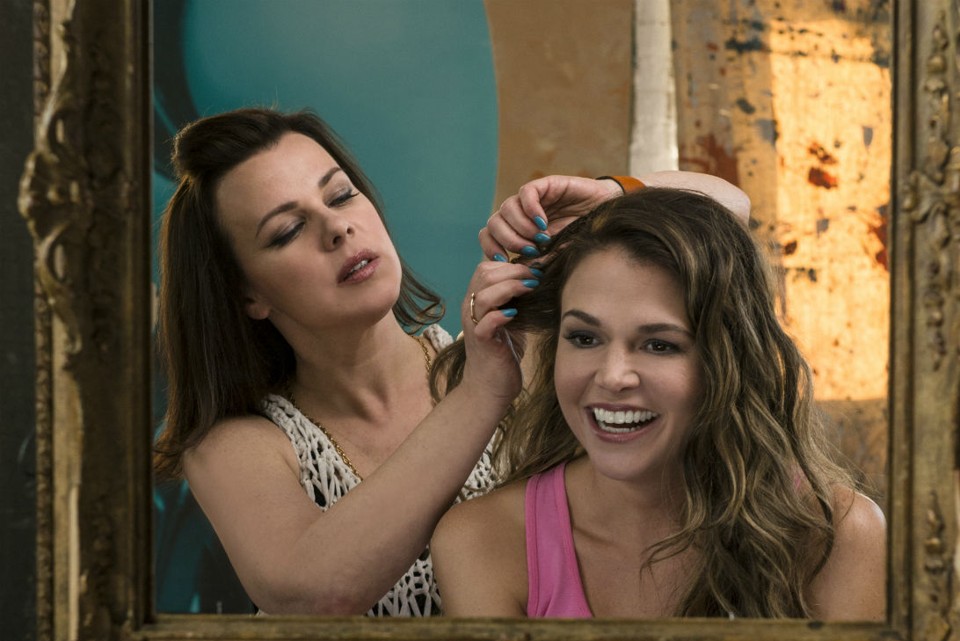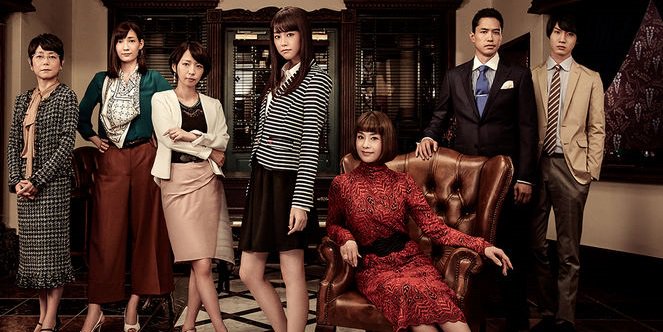
This isn’t going to be a bashing article. This isn’t even going to be a negative review about a movie.
This is, plain and simple, why I could not find it in me to love the newest entry in J.K. Rowling’s ever-expanding Harry Potter franchise.
First of all, let me start off by saying that I love Harry Potter. Seriously. I’ve loved it for nearly eighteen years. Everything about it is, unequivocally and undisputably, my shit. Magic! Boarding school setting! A protagonist who’s painfully self-aware of his own forced heroism! Faithful sidekicks who aren’t just sidekicks, but are both key to the downfall of the central villain! Love, in all its pure, unselfish forms, conquers all!
Also, let me add that I loved Eddie Redmayne’s performance. (I mean, that fucking Erumpent mating dance!!!!!) I loved Newt, and Tina, and Queenie, and Jacob. I loved them as individual characters. I loved them together as a group.
But here’s where Fantastic Beast misses the mark for me.
Firstly, it’s white as hell.
“So is the original film series!”
Yes. So is the original series, which was started seventeen years ago. (Harry Potter and the Philosopher’s Stone only came out in 2001, but Warner Bros bought the rights and began work on the first film as early as 1999.) It’s literally a decade and a half behind Fantastic Beasts. So, yes, I can see why the original series is white as hell. Conversely, I do not understand why Fantastic Beasts is also white as hell.
Pretty much every POC that appeared in the movie had no speaking lines (save for, of course, Seraphina Picquery, President of MACUSA). Either that, or they weren’t even human. Seriously, click on the link. It explains every single one of my diversity problems with FB.
I see a lot of people defending this choice, saying stuff like ‘it was 1920s America! Segregation was a thing!’ One Tumblr user even helpfully explains that ‘The only reason there were POC in the movie at all is because the American wizarding society had their segregation based on magical heritage rather than skin color.’
Well, that’s exactly the issue, isn’t it? If the American wizarding society’s only concern was magical heritage and not skin colour, shouldn’t we have been able to spot way more POC in FB? In fact, it should’ve been overflowing with POC, since the only criteria for being part of the both the American and British wizarding societies was magic. So, thanks, my guy, but no thanks for trying to tell everyone that we should be grateful we got even a hint of non-white skin.
Secondly, the movie’s treatment of abuse victims was really fucking disturbing.
Look, I get that the whole Obscurus business is a loose metaphor for non-heterosexuality. It could even work as a loose metaphor for mental illness. That’s fine and dandy. I can definitely roll with that, especially when you figure that Newt’s real goal for coming to America is to study Obscurials in-depth. Two thumbs up.
But when you demonise the abuse victim and spend the entire movie building him up to be the greatest danger to both wizarding and No-Maj society, that’s not fucking okay. When you give me a climax scene that’s basically the protagonist attempting to tell the abuse victim to “chill out, man”, that’s not fucking okay.
I don’t know about you, but I did not count it as a win when Credence was killed. I did not go “phew, glad that’s over!”
There’s a lot more to be said about this issue, but just for the sake of keeping the momentum going, I’m going to move on. (Read this alternative summary of the FB plot for more on why Rowling’s treatment of Credence’s storyline was shoddy at best.)
Thirdly, I just didn’t see a point to it all.
You guys, I loved the whole deal with Newt’s overly-attached Bowtruckle pet. The Niffler was endearing as hell, too. I wanted to hug the Demiguise, and I’m still not sure why. That Thunderbird was so fucking beautiful, I practically drooled.
But… what exactly was the point, though?
There are to be five movies total in the FB franchise. From what I can tell, the central villain to this tangential series is Gellert Grindelwald. Now, if that is truly so, then this movie was perilously close to unnecessary.
Let this quote shed a little more light on what I mean:
Be it in the first or fourth film in the original series, every element of the world had a narrative reason to be there beyond simply superficial beauty or amusement. From Quidditch to the Phoenix or Dobby the house elf, all were wonderful, but all of them narratively motivated.
Here by contrast we are challenged to feel awe for CGI creations that are introduced for no real purpose relating to plot, story or emotion. Being totally inconsequential, their extravagant visibility and destruction makes no real difference to proceedings. Their sole motivation is to display the originality of a fully realised world and the CGI technique of the artists involved.
It is as if JK Rowling – who, tellingly, takes full screenwriting credit here – has fallen in love with the universe she has created, failing to understand what made it so popular and beloved in the first instance. It wasn’t the magic alone, but the connectivity of it all, the way in which it all made sense.
(from Elena Lazic’s review)
All of the above? All that, for me, was where Fantastic Beasts truly fell short of the magical mark set by Harry Potter. The diversity issue, the problems with depictions of abuse and mental health — all of those things can, in some way, be chalked up to generic Hollywood incompetence and ignorance.
But while the world of Harry Potter was immersive and intricate, Fantastic Beasts just felt disconnected and shallow.
Honestly, I didn’t hate Fantastic Beasts. (She says, after writing nearly a thousand words on things she didn’t like about it.)
Haha. But no, seriously. I didn’t.
Going into it, I was genuinely looking forward to how the film was going to jump start the Grindelwald arc of magical history. I mean, Grindelwald was basically the OG Voldemort, wasn’t he? Delving into his rise to power makes for interesting storytelling.
I just wish that there had been an interesting story to it.
So, yes, I didn’t hate Fantastic Beasts. But as cute and precious as Newt and all his creatures were, I just couldn’t love it.
Like this article? You can subscribe to more like it right here:
#mc_embed_signup{background:#fff; clear:left; font:14px Helvetica,Arial,sans-serif; width:100%;}
/* Add your own MailChimp form style overrides in your site stylesheet or in this style block.
We recommend moving this block and the preceding CSS link to the HEAD of your HTML file. */


















